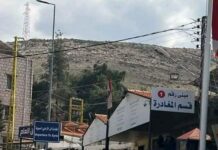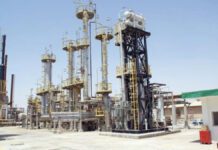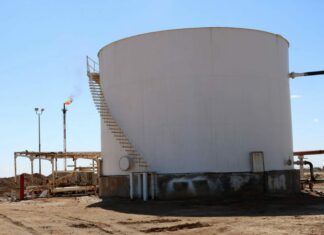
Israeli forces launched airstrikes at dawn today, October 3, targeting an Iranian weapons depot located at the Russian Hmeimim military base and Latakia International Airport. The attack, which marks the first time Latakia Airport has been bombed since Israel began its raids on Syria, ignited a fire and destroyed a warehouse containing arms and ammunition, just hours after an Iranian aircraft had landed.
According to sources cited by Syria TV, the Israeli raids targeted the Hmeimim base and other military sites along Syria’s coastal region, following the arrival of an Iranian Boeing-748 aircraft operated by Qashim Fars Air. The plane, which reportedly had its radar systems turned off, landed at Latakia Airport on Wednesday and departed about eight hours before the strikes. The company, under US sanctions since 2019 for its connections to Iran’s Revolutionary Guard Corps (IRGC) and involvement in arms smuggling, remains a key player in the illicit transfer of military equipment.
The Israeli assault, which began around 3:55 a.m. and lasted nearly 45 minutes, was executed by both air and naval forces, according to sources. Two missiles hit the targeted warehouse inside the airport, while Russian and regime air defense systems intercepted several other projectiles. In response to the strikes, Russian forces at Hmeimim dispatched two Su-27 fighter jets to patrol the Syrian coastline.
Videos and photos posted on social media showed large explosions and fires breaking out in multiple locations, including in the vicinity of Jableh, where an ammunition depot exploded. Fire brigades, both Syrian and Russian, were unable to reach the burning warehouse at the airport for nearly an hour due to the intensity of the explosions and sporadic missile activity.
Local sources also reported hearing blasts in both Latakia and Tartus. Although Syrian state media claimed that air defense systems engaged hostile objects along the coast, the extent of the damage has yet to be fully confirmed.
The Israeli strikes reportedly targeted a temporary storage facility used by the IRGC to house weapons shipments before they were transferred to Hezbollah in Lebanon and other regions in Syria. Israeli forces have long been focused on dismantling Iranian supply lines within Syria, aiming to prevent the spread of weapons to Hezbollah and other militias allied with Tehran.
Thursday’s strikes were unprecedented in scope, with several locations being bombed simultaneously, including a massive weapons depot near Jableh. Despite Israel’s repeated airstrikes on Iranian and Syrian regime positions over the years, this latest attack drew attention due to its proximity to a Russian-controlled military base, raising questions about Russia’s role and response to the ongoing conflict between Israel and Iran in Syrian territory.
While the Assad regime’s official media remained largely silent on the attack, pro-regime pages circulated videos showing the aftermath of the strikes. The Russian government has also refrained from issuing any strong condemnation of the Israeli attack. Kremlin spokesperson Dmitry Peskov, in a statement following a previous Israeli strike on Damascus, reiterated Russia’s opposition to such actions but stopped short of outlining any concrete measures to deter future raids.
Despite Russia’s advanced air defense systems stationed at Hmeimim, including the S-300 system, Israel continues to carry out airstrikes unimpeded. This has led to growing frustration among pro-Assad supporters, who view Russia as responsible for protecting Damaskus from foreign aggression. Yet, Moscow’s reluctance to engage Israel has caused widespread disillusionment within regime-controlled areas.








